French GDP grew 0.3% qoq in Q4, matched expectations. Over the year, growth slowed to 1.5% in 2018, down from 2.3% in 2017. Looking at the details, final domestic demand excluding inventory changes decelerated: it contributed 0.2 points to GDP growth, after 0.5 points in the previous quarter. Foreign trade balance contributed positively to GDP growth again: +0.3 points, after +0.2 points in Q3. Conversely, changes in inventories contributed negatively to GDP growth again (−0.2 points after −0.4 points).
Swiss KOF dropped to 92.4, deteriorating sentiment extended from manufacturing to others
KOF economic Barometer dropped to 92.4 in February, down from 96.2 and missed expectation of 96.0. KOF noted that recent downward tendency ” continued unabated”, and the Swiss economy can expect to experience a “weak phase” in the coming months. And, the marked decline is predominantly due to negative impulses from the manufacturing industry; but the deteriorating sentiment has meanwhile also extended to the other components of this barometer.
Swiss GDP grew 0.2% qoq, confirmed slowdown
Swiss GDP grew 0.2% qoq in Q4, rebounded from Q3’s -0.3% qoq contraction, but missed expectation of 0.4% qoq. SECO noted that “as in other European countries, this confirms a slowdown of the economy compared to the first half of the year.”
Looking at the details, manufacturing grew 1.5%, benefited from the strong international demand for Swiss products: exports of goods**(+5.6%) grew substantially. Development in the service industry varied and remained below the historical average, curbed by declining exports of services (−2.6 %) and a final domestic demand which remains sluggish (−0.0%). Consumption expenditures of private households (+0.3%) saw a moderate rise.
Trump-Kim summit collapsed, it’s all about the sanctions
Trump in a press conference that he walked away from the summit with North Korean leader Kim Jong-un. But he emphasized that “it was a friendly walk”. The meeting in Vietnam was cut short and ended without an agreement and not even a joint statement.
Trump said “it was all about the sanctions”. He added “basically they wanted the sanctions lifted in their entirety, and we couldn’t do that”. On the other hand, Trump said Kim offered to dismantle North Korea’s main nuclear facility at Yongbyon, but “it wasn’t enough” to the US.
Trump also added that he could’ve signed an agreement today but it wasn’t the right time. He emphasized he’d “rather do it right”.
BoJ Suzuki: Absolutely no need to ramp up monetary easing
BoJ board member Hitoshi Suzuki said today that there is “absolutely no need” to ramp up monetary easing. He added, “if the momentum for hitting the price target is lost, the BOJ will consider taking appropriate action. But many board members, including myself, believe the momentum is sustained.”
Nevertheless, Suzuki noted it’s the current massive stimulus program is still needed. He said “there’s a risk inflation won’t accelerate much for a prolonged period, as companies remain cautious of raising wages and households are sensitive to price rises.
Yen mildly higher as Trump-Kim summit cut short, no agreement reached
Yen is given a mild lift on news that Trump-Kim summit in Vietnam is cut short, for unknown reason. Trump will pull ahead his scheduled media conference to 0700 GMT. And, for now, it’s unknown whether the scheduled “join agreement signing ceremony” would still be held.
White House spokeswoman Sarah Sanders confirmed that “the two leaders discussed various ways to advance denuclearization and economic driven concepts,” but “no agreement was reached at this time, but their respective teams look forward to meeting in the future.”
Earlier, both sides indicated progresses in denuclearization of the Korean Peninsula. Kim told reports that “If I’m not willing to do that, I won’t be here right now”. Trump responded by saying “that might be the best answer you’ve ever heard.”
Asian update: Forex markets turned quiet, surging treasury yield might drive next move
The forex markets turned mixed in Asian session today, awaiting fresh stimulus. Australian Dollar was briefly lifted by stronger than expected Q4 private capital expenditure. But it’s quickly knocked down by poor China PMI manufacturing. USTR Robert Lighthizer’s testimony on China trade talk triggered little reactions in the markets. Similar, Fed Chair Jerome Powell’s testimony and Trump-Kim summit in Vietnam are shrugged off. Sterling is currently the weakest for today while Swiss Franc is strongest. But major pairs and crosses are bounded in tight range. The picture can be easily changed ahead.
For the week, Sterling remains on the strongest one on fading no-deal Brexit risks. Euro is following as the second strongest. Yen is the weakest one, partly due to strong rally in global treasury yields at the long end. German 10-year yield is back pressing 0.15. US 30-year yield also had the largest jump in about a month yesterday. Canadian Dollar is the second weakest for the week. Focus will now turn to GDP data from US.
In Asia,
- Nikkei is down -0.35%.
- Hong Kong HSI is up 0.10%.
- China Shanghai SSE is down -0.35%.
- Singapore Strait Times is down -0.57%.
- Japan 10-year JGB yield is up 0.0002 at -0.024.
Overnight,
- DOW dropped -0.28%.
- S&P 500 dropped -0.05%.
- NASDAQ rose 0.07%.
- 10-year yield rose 0.057 to 2.693.
- 30-year yield rose 0.063 to 3.069.
The strong rally in 30-year yield is worth a note. TYX might have completed the consolidation from 3.109 and the rise from 2.900 low could be ready to resume. 55 day EMA is the immediate focus. But the real test will be on 38.2% retracement of 3.455 to 2.900 at 3.112. Surging yields could be the next driver in the forex markets
ANZ business confidence dropped to -30.9, RBNZ to cut in November
New Zealand ANZ Business Confidence dropped to -30.9 in February, down from -24.1. Activity Outlook dropped to 10.5, down fro 13.6. ANZ noted that recent improvement in business activity stalled. Export intentions fell to the weakest since March 2009. Pricing intentions remain range-bound.
ANZ also noted that “Clearly the economy is stretched at the moment, but it does appear that momentum has waned markedly over the last six months.” And it expects RBNZ to become “less certain that core inflation will continue rising towards the midpoint of the target band”. ANZ forecasts a cut in OCR in November.
Also from down under, Australia private capital expenditure rose 2.0% in Q4 versus expectation of 1.0%. Private sector credit rose 0.2% mom in January versus expectation of 0.3% mom.
China PMI manufacturing dropped to 49.2, new export orders hit decade low
The official China PMI manufacturing dropped to 49.2 in February, down from 49.5 and missed expectation of 49.5. That’s the third straight month of sub-50 reading. Looking at the details new export orders index dropped -1.7 to 45.2, its lowest level in 10 years, suggesting trade war with the US continues to have an impact on exports. Production dropped -1.4 to 49.5. Employment dropped -0.3 to 47.5. PMI services dropped to 54.3, down from 54.7, missed expectation of 54.5.
However, analyst Zhang Liqun tried to talk down the deterioration in the statement. He noted that the decline in PMI was mainly due to Lunar New Year factor. He pointed to the significant decline in the production, the purchase volume, and the raw material inventory as indications.
Also from Asia, Japan industrial production dropped -3.7% mom in January versus expectation of -2.5% yoy. Japan retail sales rose 0.6% yoy in January, below expectation of 1.5% yoy.
Fed Powell: Balance runoff likely settles at around 16-17% of GDP
In the second day of Congressional Testimony, Fed Chair Jerome Powell said Fed will stop the balance sheet runoff this year. The balance sheet will then be at around 16-17% of GDP, up from 6% before the financial crisis. Considering that the US GDP is currently at around USD 20T, the balance sheet would eventually be between USD 3.2T and USD 3.4T. The Balance sheet is currently just over USD 4T.
Powell said “we’ve worked out, I think, the framework of a plan that we hope to be able to announce soon that will light the way all the way to the end of balance sheet normalization”. And, “we going to be in a position … to stop runoff later this year.”
He also bluntly noted that Fed is “not looking at a higher inflation target, full stop”, even if Fed is rethinking its policy framework for this year.
USTR Lighthizer: Market outcomes to determine winners, not state-capitalism and technology theft
In his testimony to House Ways and Means Committee on China trade negotiation, US Trade Representative Robert Lighthizer laid down the principle that the US “can compete with anyone in the world”. But he emphasized “we must have rules, enforced rules”. And “market outcomes” rather than “state-capitalism” and “technology theft” determine winners. China’s unfair trade practices are “major threats to our economy”.
Lighthizer said there were “very intense, extremely serious, and very specific negotiation with China on crucial structural issues for several months” and “real progress” were made. US could “turn the corner” in the economic relationship with China “if” they can reach a satisfactory solution to the all-important outstanding issue of enforceability as well as some other concerns. But “much still needs to be done” before an agreement is reached, and “more importantly, after it is reached.”
He also emphasized that the administration is “pressing for significant structural changes” rather than “soybean solution”. The US is “very aware of ” the history with China and the “disappointments that have resulted from promises that were not kept” And, “the reality is this is a challenge that will go on for a long, long time.” He added that “if there is disagreement at my level, the U.S. would expect to act proportionately but unilaterally.”
Meanwhile, as the agreements are settlements of China’s violations of Section 301 of the Trade Act of 1974. So they are executive actions that do not require Congress’ approval. China talks are more in common with a sanctions-monitoring regime than a traditional trade pact.
Canada CPI slowed to 1.4%, CAD rise as CPI risks cleared
Canada headline CPI slowed to 1.4% yoy in January, down from 2.0% yoy, matched expectations. CPI core-common was unchanged at 1.9% yoy. CPI core-median was unchanged at 1.8% yoy. CPI core-trim was unchanged at 1.9% yoy. Energy costs declined 6.9%, while the growth in the price of services slowed to 2.7% as transitory pressures from the air transportation, telephone services and travel tours indexes dissipated.
USD/CAD drops again as the CPI risk is now cleared. Rebound in oil price is helping the Loonie. WTI crude is now back above 56.7, comparing to this week’s low at 55.11.
Into US session: Sterling extends rally, Swiss Franc strong on Pakistan/India tensions
Entering US session, Sterling is back in the driving seat again and is extending this week’s rally on fading chance of no-deal Brexit. Swiss Franc follows as the second strongest, lifted by escalating Pakistan/India tensions after both shot down each others’ fighter jets. Canadian Dollar is now the third strongest, as oil price rebound. WTI is back above 56.7 as the impact of Trump’s tweet fades. Meanwhile, Aussie and Kiwi are the weakest ones.
Focus will now turn to Canadian CPI first. US will also release trade balance pending home sales and factory orders. Fed chair Jerome Powell will have the second day of Congressional testimony. But testimony of USTR Robert Lighthizer’s testimony will catch more attention. Lighthizer might reveal some of the little known substantial progress in trade talks with China.
In Europe, currently:
- FTSE is down -0.70%.
- DAX is down -0.37%.
- CAC is down -0.15%.
- German 10-year yield is down -0.0127 at 0.107.
Earlier in Asia:
- Nikkei closed up 0.50%.
- Hong Kong HSI dropped -0.05%.
- China Shanghai SSE rose 0.42%.
- Singapore Strait Times dropped -0.36%.
- Japan 10-year JGB yield rose 0.0019 to -0.024.
Bundesbank Weidmann: OIl price and growth expectation could temporarily influence inflation
More from Bundesbank President Jens Weidmann, he said that ECB should looks through short term fluctuations in inflation caused by oil prices to temporary slowdown. He emphasized that ECB’s “price stability target is medium term, so we should look through these fluctuations”.
Also, “it is clear that short-term fluctuations in oil prices — like the sharp decline at the end of 2018 — but also corrections in growth expectations for 2019, could temporarily influence the inflation outlook.”
Bundesbank Wedimann, growth to fall well short of 1.5% potential this year
Bundesbank President Jens Weidmann said today that German economy growth will “fall well short of the potential rate of 1.5 percent in 2019”. That’s because “there is much to suggest that the dip in growth here in Germany has persisted into the current year”.
However, he emphasized that the prerequisites for growth remain intact, including low financing cost, expansion in employment market and rising wages. Thus, there is no reason for pessimism yet.
Separately, it’s reported that German cabinet gave green-light for a second eight-year term for Weidmann, as the current term expires at the end of APril.
Eurozone economic sentiment dropped to -0.2, business climate unchanged at 0.69
Eurozone Economic Sentiment Indicator dropped -0.2 to 106.1 in February, slightly above expectation of 106.0. The broadly unchanged reading resulted from “weaker industry and construction confidence in combination with more upbeat signals from the services sector, as well as, to a lesser extent, retail trade and consumers”. Meanwhile the ESI dropped in Franc (-0.9%) and Italy (-1.6), practically flat in Germany (-0.1) and Spain (0.0), but improved in the Netherlands (+3.0).
Eurozone Business Climate Indicator is flat at 0.69 in February, slightly above expectation of 0.67. Eurostats noted “Managers’ production expectations, as well as their assessments of the stocks of finished products, overall- and export order books clouded over. Meanwhile, the appraisals of past production rebounded from last month’s sharp drop.”
Rees-Mogg could back May’s Brexit deal with reasonably effective time limit on Irish backstop.
Jacob Rees-Mogg, a high profile Brexiteer Conservative, said that the could back Prime Minister Theresa May’s Brexit deal if there is a reasonably effective time limit on the Irish backstop.
Rees-Mogg told BBC ratio that “I can live with the de facto removal of the backstop…. I mean that if there is a clear date that says the backstop ends, and that is in the text of the treaty or equivalent of the text of the treaty”.
But he also insisted that the time limit should be “a short date, not a long date, then that would remove the backstop in the lifetime of parliament and that would have a reasonable effect from my point of view.”
Swiss Franc surges after Pakistan shot down two Indian jets in its airspace
Swiss Franc jumps notably on escalating tension between India and Pakistan. It’s reported that Pakistan said its fighter planes have shot down two Indian jets. Pakistan army spokesman Asif Ghafoor said Indian jets entered its airspace. Two Indian pilots are arrested.
Ghafoor said in a news conference “this was not a retaliation in true sense, but to tell Pakistan has capability, we can do it, but we want to be responsible, we don’t want an escalation, we don’t want a war.” The country’s foreign ministry also said in a statement “If India is striking at so called terrorist backers without a shred of evidence, we also retain reciprocal rights to retaliate against elements that enjoy Indian patronage while carrying out acts of terror in Pakistan,”
It come just a day after India claimed it attacked a terrorist camp in Pakistan. That’s the first time Indian jets struck inside Pakistan since 1971.
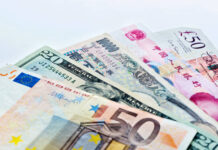


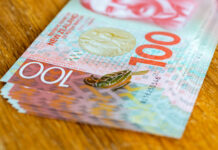
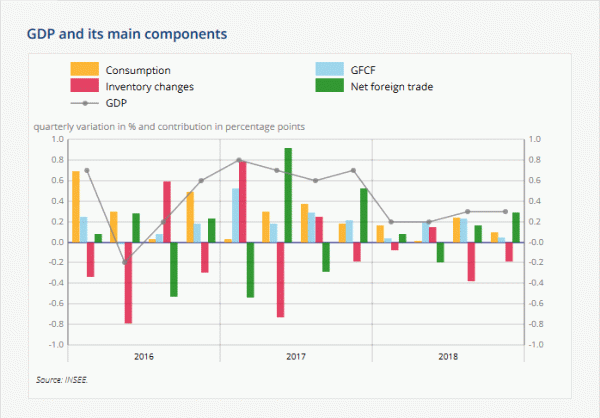
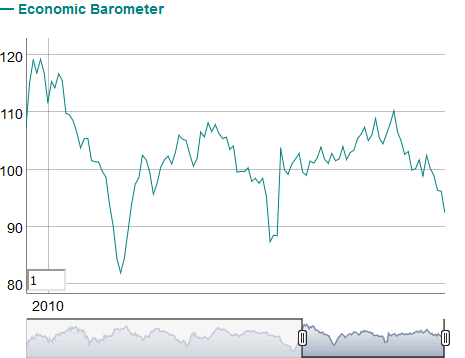
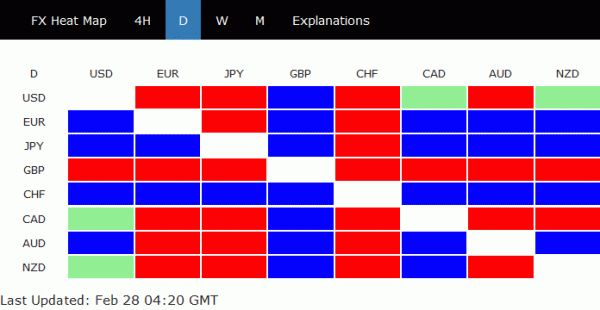
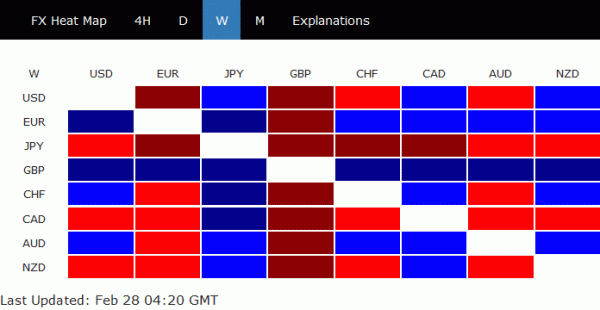
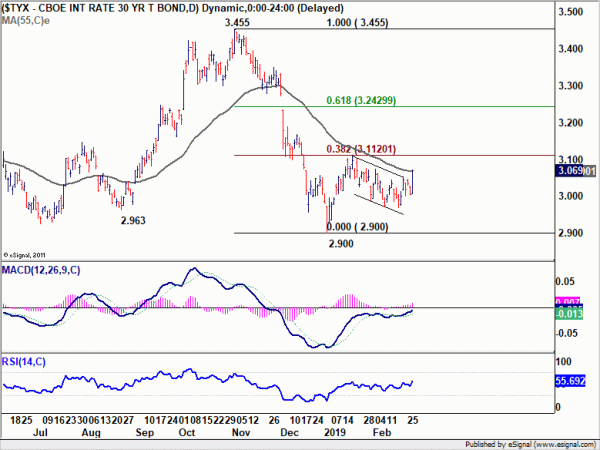
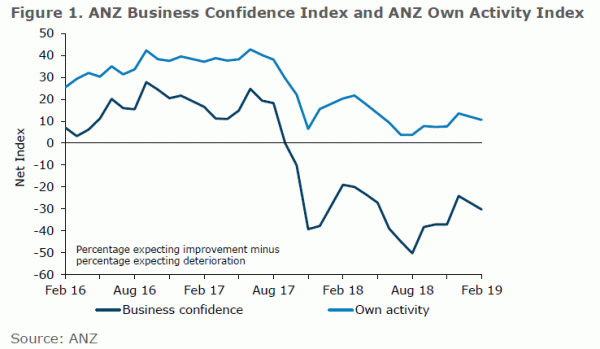

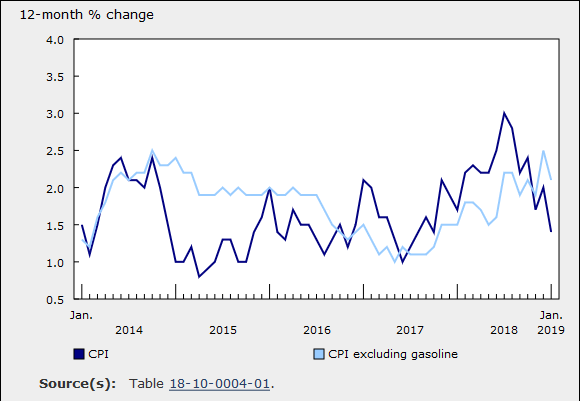
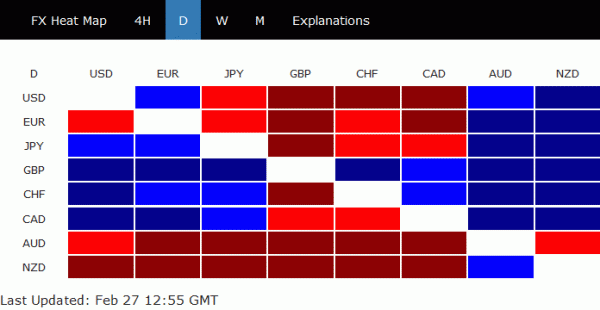
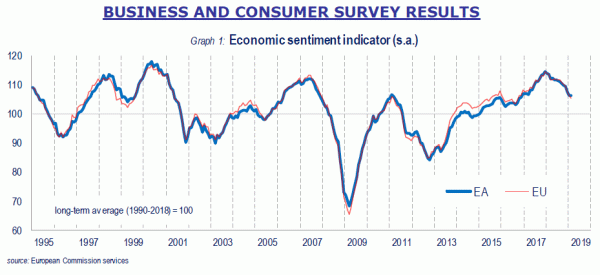
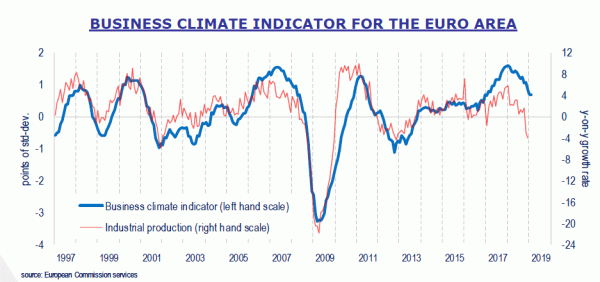
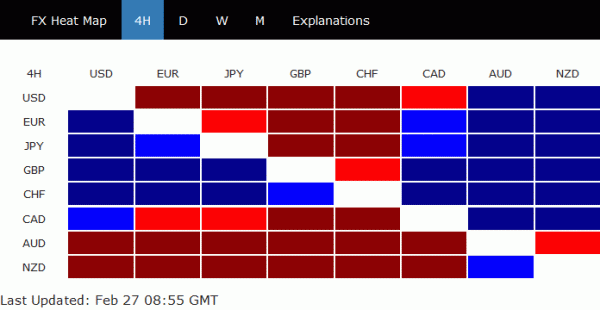

Into US session: CHF rises as Trump-Kim summit collapsed, Euro follows German yield higher
Entering into US session, Swiss Franc and Euro are the strongest ones for today. It’s partly due to extended rally in German yields. But more so, judging that Yen is the third strongest, it likely due to collapse of Trump-Kim summit.
Sterling is the weakest one for today, paring some of this week’s strongest gains. Canadian Dollar is the second weakest as WTI crude oil retreats.
For the week, Sterling remains the strongest one, followed by Swiss Franc. Canadian is the weakest one, followed by Yen.
Looking ahead, US Q4 GDP will takes center stage, with Chicago PMI and jobless claims featured. Canada will release current account, IPPI and RMPI but they’re unlikely to trigger any reaction.
In Europe, currently:
Earlier in Asia: